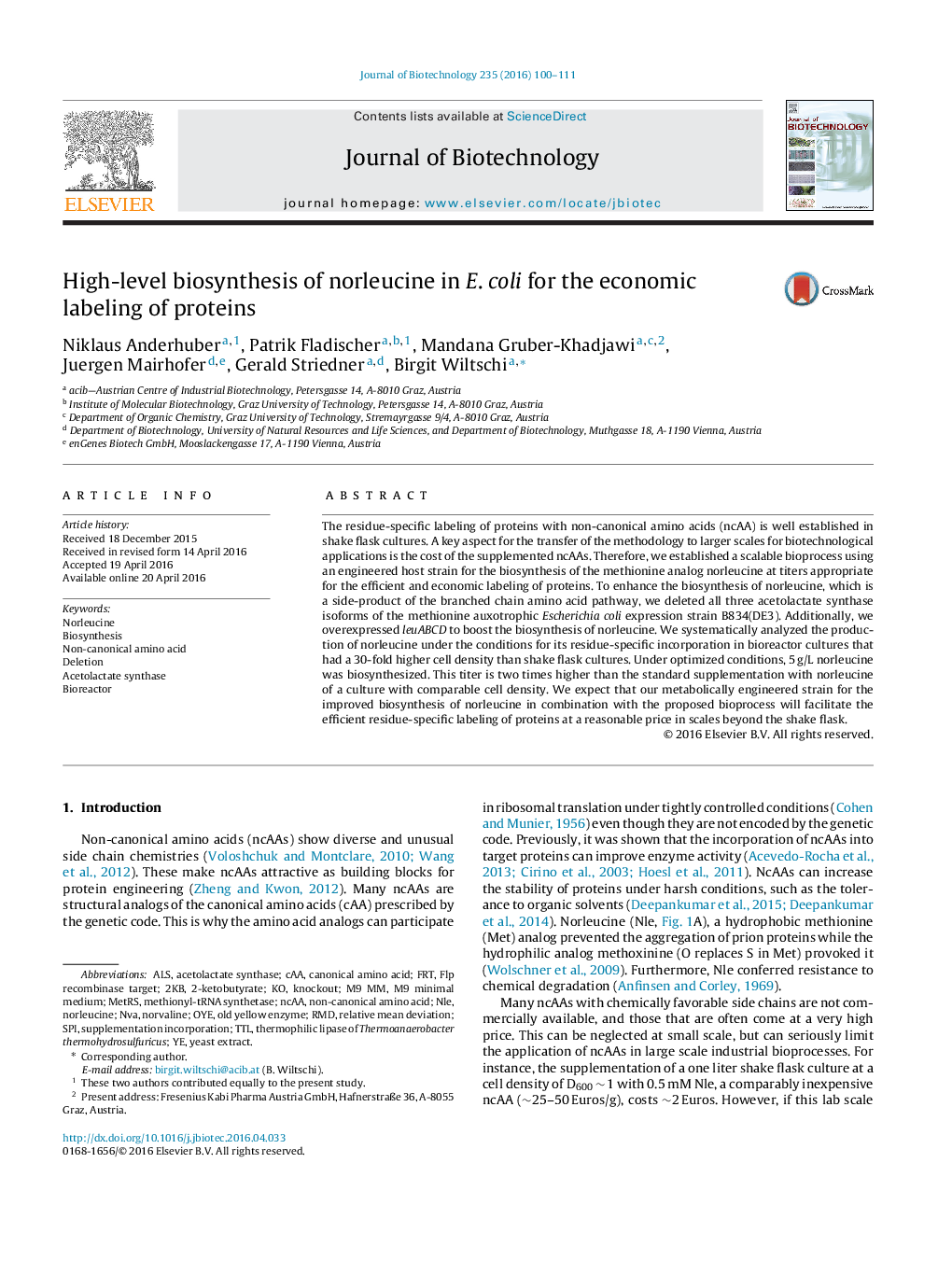| Article ID | Journal | Published Year | Pages | File Type |
|---|---|---|---|---|
| 6452320 | Journal of Biotechnology | 2016 | 12 Pages |
â¢Metabolic engineering of E. coli to biosynthesize the methionine analog norleucine for the cost-effective labeling of proteins at large scales.â¢The scalable biosynthesis of norleucine from shake flask to bioreactor cultures.â¢Bioprocess engineering boosted the norleucine titers to 5 g/L.
The residue-specific labeling of proteins with non-canonical amino acids (ncAA) is well established in shake flask cultures. A key aspect for the transfer of the methodology to larger scales for biotechnological applications is the cost of the supplemented ncAAs. Therefore, we established a scalable bioprocess using an engineered host strain for the biosynthesis of the methionine analog norleucine at titers appropriate for the efficient and economic labeling of proteins. To enhance the biosynthesis of norleucine, which is a side-product of the branched chain amino acid pathway, we deleted all three acetolactate synthase isoforms of the methionine auxotrophic Escherichia coli expression strain B834(DE3). Additionally, we overexpressed leuABCD to boost the biosynthesis of norleucine. We systematically analyzed the production of norleucine under the conditions for its residue-specific incorporation in bioreactor cultures that had a 30-fold higher cell density than shake flask cultures. Under optimized conditions, 5Â g/L norleucine was biosynthesized. This titer is two times higher than the standard supplementation with norleucine of a culture with comparable cell density. We expect that our metabolically engineered strain for the improved biosynthesis of norleucine in combination with the proposed bioprocess will facilitate the efficient residue-specific labeling of proteins at a reasonable price in scales beyond the shake flask.
